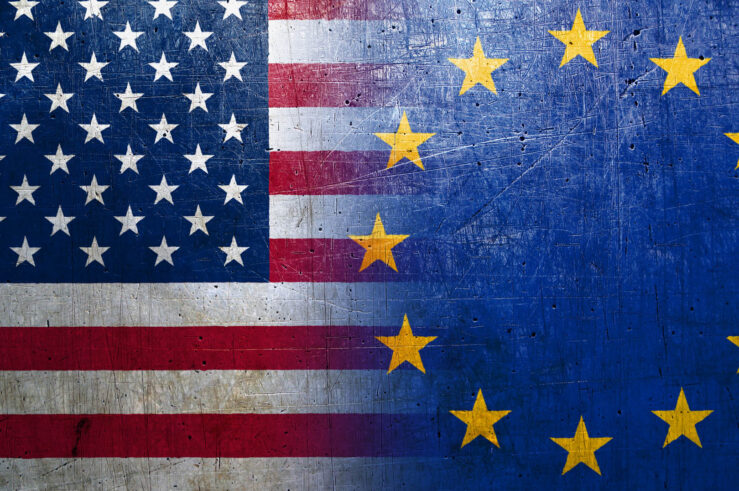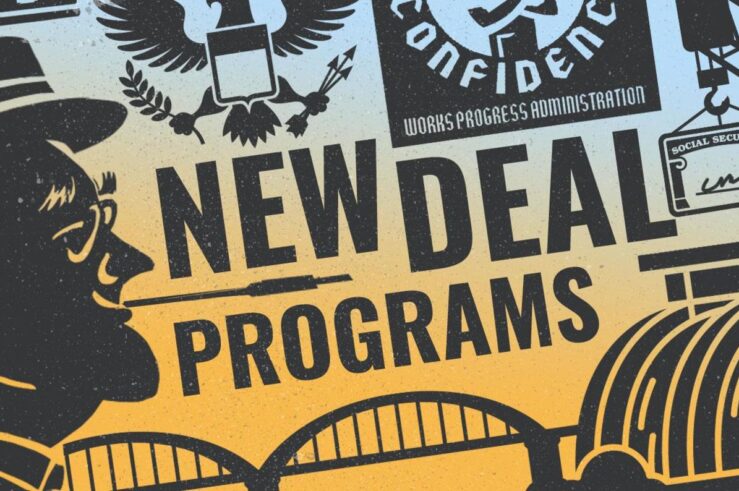Showing results for: “Das neueste AI-900, nützliche und praktische AI-900 pass4sure Trainingsmaterial 🌇 Öffnen Sie die Webseite ⮆ www.itzert.com ⮄ und suchen Sie nach kostenloser Download von ( AI-900 ) ⚓AI-900 Deutsch Prüfungsfragen”
Using the Hypothetical Monopolist Test to Define the Relevant Market for Ad Tech
Policymakers’ recent focus on how Big Tech should be treated under antitrust law has been accompanied by claims that companies like Facebook and Google hold dominant positions in various “markets.” Notwithstanding the tendency to conflate whether a firm is large with whether it hold a dominant position, we must first answer the question most of ... Using the Hypothetical Monopolist Test to Define the Relevant Market for Ad Tech
Online Display Advertising: What’s the relevant market?
Digital advertising is the economic backbone of the Internet. It allows websites and apps to monetize their userbase without having to charge them fees, while the emergence of targeted ads allows this to be accomplished affordably and with less wasted time wasted. This advertising is facilitated by intermediaries using the “adtech stack,” through which advertisers ... Online Display Advertising: What’s the relevant market?
A Coasean Analysis of Offensive Speech
Words can wound. They can humiliate, anger, insult. University students—or, at least, a vociferous minority of them—are keen to prevent this injury by suppressing offensive speech. To ensure campuses are safe places, they militate for the cancellation of talks by speakers with opinions they find offensive, often successfully. And they campaign to get offensive professors ... A Coasean Analysis of Offensive Speech
Antitrust Dystopia and Antitrust Nostalgia
The dystopian novel is a powerful literary genre. It has given us such masterpieces as Nineteen Eighty-Four, Brave New World, and Fahrenheit 451. Though these novels often shed light on the risks of contemporary society and the zeitgeist of the era in which they were written, they also almost always systematically overshoot the mark (intentionally ... Antitrust Dystopia and Antitrust Nostalgia
More Evidence that the Patent System Promotes Dynamic Competition and Consumer Welfare
The patent system is too often caricatured as involving the grant of “monopolies” that may be used to delay entry and retard competition in key sectors of the economy. The accumulation of allegedly “poor-quality” patents into thickets and portfolios held by “patent trolls” is said by critics to spawn excessive royalty-licensing demands and threatened “holdups” ... More Evidence that the Patent System Promotes Dynamic Competition and Consumer Welfare
Breaking Down the American Choice and Innovation Online Act
The American Choice and Innovation Online Act (previously called the Platform Anti-Monopoly Act), introduced earlier this summer by U.S. Rep. David Cicilline (D-R.I.), would significantly change the nature of digital platforms and, with them, the internet itself. Taken together, the bill’s provisions would turn platforms into passive intermediaries, undermining many of the features that make ... Breaking Down the American Choice and Innovation Online Act
Doubling Down on Durbin Disaster: Interchange Fee Caps Shortchange Consumers
The U.S. economy survived the COVID-19 pandemic and associated government-imposed business shutdowns with a variety of innovations that facilitated online shopping, contactless payments, and reduced use and handling of cash, a known vector of disease transmission. While many of these innovations were new, they would have been impossible but for their reliance on an established ... Doubling Down on Durbin Disaster: Interchange Fee Caps Shortchange Consumers
Technology Mergers and the Market for Corporate Control
In recent years, a growing chorus of voices has argued that existing merger rules fail to apprehend competitively significant mergers, either because they fall below existing merger-filing thresholds or because they affect innovation in ways that are purportedly ignored. These fears are particularly acute in the pharmaceutical and tech industries, where several high-profile academic articles ... Technology Mergers and the Market for Corporate Control
FTC Antitrust Enforcement and the Rule of Law
The language of the federal antitrust laws is extremely general. Over more than a century, the federal courts have applied common-law techniques to construe this general language to provide guidance to the private sector as to what does or does not run afoul of the law. The interpretive process has been fraught with some uncertainty, ... FTC Antitrust Enforcement and the Rule of Law
How US and EU Competition Law Differ
U.S. and European competition laws diverge in numerous ways that have important real-world effects. Understanding these differences is vital, particularly as lawmakers in the United States, and the rest of the world, consider adopting a more “European” approach to competition. In broad terms, the European approach is more centralized and political. The European Commission’s Directorate ... How US and EU Competition Law Differ
Old Ideas and the New New Deal
Over the past decade and a half, virtually every branch of the federal government has taken steps to weaken the patent system. As reflected in President Joe Biden’s July 2021 executive order, these restraints on patent enforcement are now being coupled with antitrust policies that, in large part, adopt a “big is bad” approach in ... Old Ideas and the New New Deal
How Changing Section 230 Could Disrupt Insurance Markets
In recent years, a diverse cross-section of advocates and politicians have leveled criticisms at Section 230 of the Communications Decency Act and its grant of legal immunity to interactive computer services. Proposed legislative changes to the law have been put forward by both Republicans and Democrats. It remains unclear whether Congress (or the courts) will ... How Changing Section 230 Could Disrupt Insurance Markets









